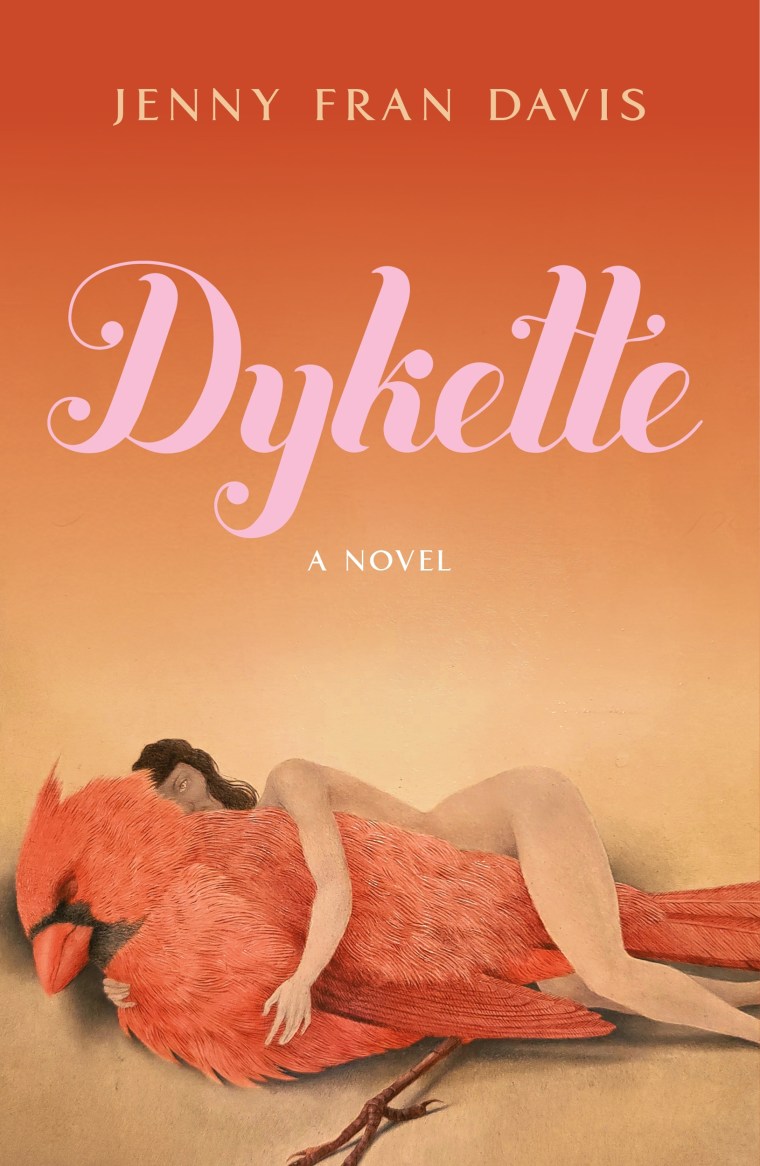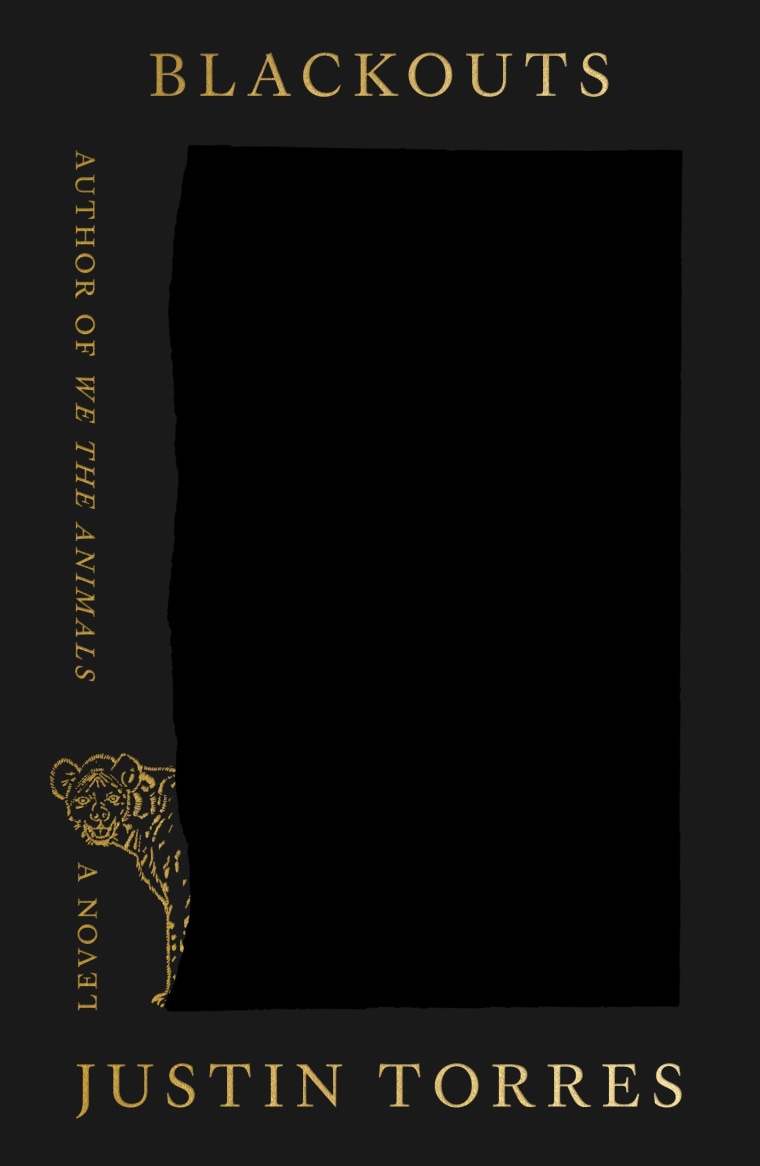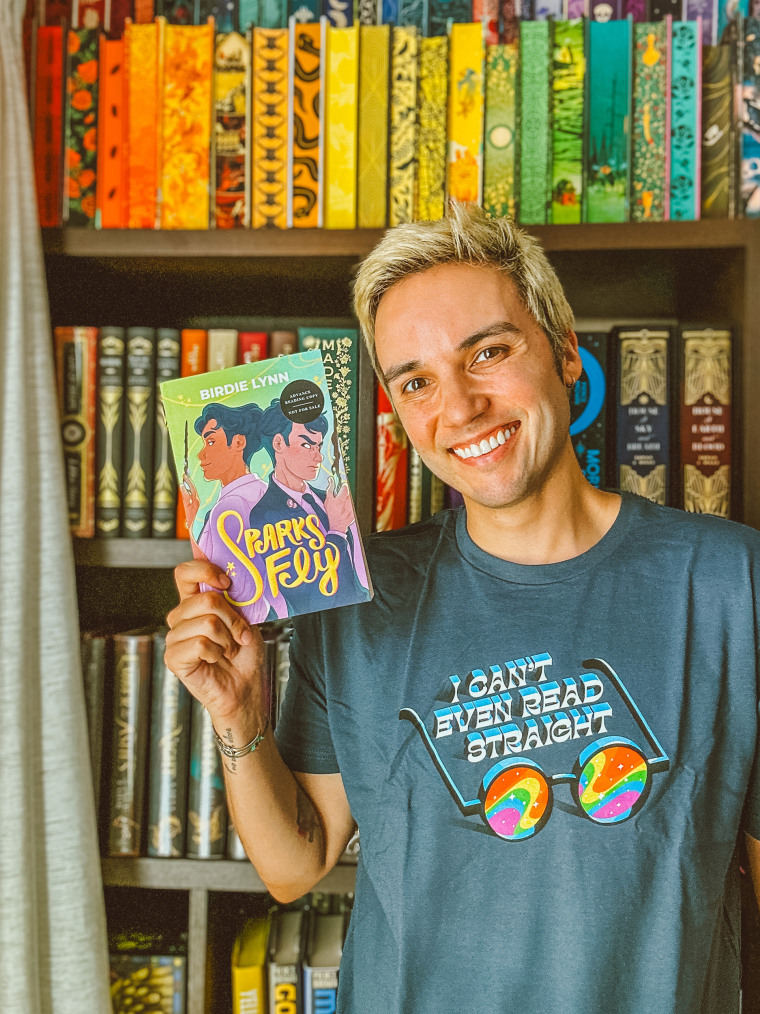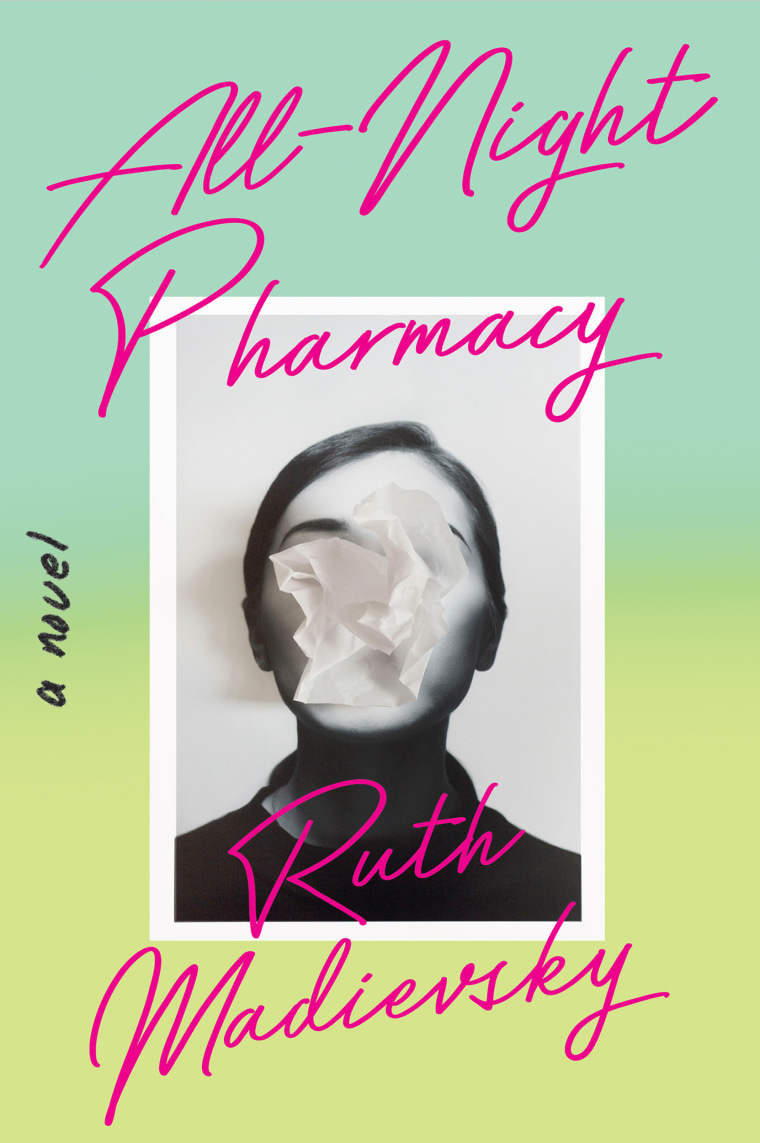When Jenny Fran Davis set out to write her second book, she had already tasted literary success with her debut novel, 2017’s young adult coming-of-age story “Everything Must Go.” But instead of following her previous book’s proven path to acclaim, the queer 25-year-old author chose to write an adult fiction title that would probe the “interior world of femme characters.” In the end, the unapologetically titled “Dykette” — a comedy of manners centering on a desperately self-conscious femme lesbian named Sasha — became one of the most buzzworthy titles of 2023, demonstrating a growing fervor for LGBTQ fiction that is transforming the book world.
“This book really came along at a time where we’re in this renaissance of gay literature. There was an immediate audience that wanted to accept it with open arms. There was a receptiveness that I don’t know would have been there five years before,” Davis told NBC News, drawing a contrast between 2023 and the year her first novel came out. “Just the title alone would have been scarier for publishers even five or 10 years ago, but there was definitely this sense of, ‘People want this now,’ and I think publishers are always looking for what readers want.”

The release of “Dykette” (Henry Holt and Co.) in May coincides with a yearslong surge in the popularity of LGBTQ fiction, which continues to drive sales even as the broader fiction market slows in the wake of the Covid-19 book boom. Beginning with a smaller but noticeable uptick in 2019, those sales reached record figures this year, resulting in 6.1 million units flying off shelves in the 12-month period ending in May.
And the numbers are holding strong: In the 12-month period ending in October 2023, LGBTQ fiction sales reached 4.4 million units, up 7% from the prior 12-month period and 200% from the 12-month period ending in October 2019, according to exclusive data provided to NBC News by Circana BookScan. In contrast, the data showed that total fiction sales were down 3% in that latest year-over-year time period and up just 27% in the four-year span.
“There’s been LGBTQIA fiction forever, but what really makes this different over the last five years is that those storylines have been moving from a more niche area of fiction into the mainstream,” Kristen McLean, Circana’s lead book industry analyst, told NBC News of what she calls a “generational story.”
More than just migrating from the margins, queer fiction titles are thriving against a backdrop of record attempts to censor works by and about the LGBTQ community. This meteoric rise, according to McLean and other industry experts, is due to a confluence of factors, including younger readers’ openness toward issues of gender and identity, a new generation of writers employing queer themes and, perhaps most importantly, the pandemic-era rise of TikTok’s literary-minded arm.
‘Different flavors of storytelling’
After a tumultuous few years, it may not be surprising that fiction is the genre driving sales of LGBTQ books, as opposed to the less-transportive nonfiction space. A more elusive part of the narrative, however, is what’s bringing in new buyers of queer fiction. To answer that, McLean pointed to the fact that varying styles of fiction books carrying an “LGBTQ+” tag — or BISAC code, the U.S. book industry’s three-tiered book categorization system — are reaching readers in record numbers.
“It used to be that the only books carrying an LGBTQIA tag very specifically had that storyline front and center, and that is giving way to all kinds of different flavors of storytelling,” she said, noting what she sees as a “broadening of perspectives” that’s attracting new and less traditional readers of queer fiction.
Now, “we see growth in fantasy, in general fiction, in sci-fi, and that really speaks to the richness of the story world and the fact that these things are cross-pollinating,” she added of books that carry “LGBTQ+” as their secondary BISAC code.

To McLean’s point, there wasn’t just one type of queer fiction title that captured the popular imagination this year. Following in the footsteps of Alice Oseman’s “Heartstopper,” the screen adaptation of Casey McQuiston’s young adult hit “Red, White & Royal Blue” was a wild success. Sapphic titles like “Dykette” and Tembe Denton-Hurst’s “Homebodies” repeatedly topped 2023’s most-anticipated and best-of lists. And Justin Torres’ genre-defying work “Blackouts” took home the coveted National Book Award for fiction last month, while Eliot Duncans “Ponyboy” was reportedly the first book with a transgender protagonist to be longlisted for the prize.
Even bookstore aisles are starting to look different because of the way queer themes are appearing in a variety of texts, according to Suzi F. Garcia, editor of the LGBTQ nonprofit Lambda Literary.
“As access to these kinds of books has grown, we’re seeing more nuances come forward. So it’s not just an LGBTQ shelf in a bookstore anymore. They’re taking up room on every shelf,” Garcia said of queer titles in general. “You’re seeing writers from other genres getting interested in exploring fiction, because they see it as a more gay-friendly space. You see a lot more cross-genre writers too, and they’re bringing their audiences with them.”
Because of those new audiences, Garcia added, publishers across the industry are expected to have LGBTQ titles in their catalogs, lest they lose sales to smaller operations that specifically cater to fans of queer fiction. And increasingly, according to McLean and others, that has meant mining unexplored spaces like self-publishing for fresh talent, as well as paying attention to what young readers are posting about on BookTok.
A next-generation book club
BookTok, the corner of TikTok dedicated to literature, began gaining traction in the early days of the pandemic, when homebound readers started consuming and posting about books en masse. Progressively, that led to a growing number of BookTokers — who skew younger, more male and more diverse than the average book-buying population, according to Circana — discussing genres within fiction, like romance and fantasy, which have thrived on the platform. And industry watchers have not hesitated to connect that interest to recent sales trends.
“Most of the authors that are growing in the romance space right now are next-generation authors, and it’s closely tied to BookTok,” McLean said of writers like McQuiston and Oseman, who — along with Mo Xiang Tong Xiu and Rick Riordan — are among the year’s top-selling writers of LGBTQ fiction, according to Circana. “In fact, we see a lot of these authors taking share from romance bestsellers like Nora Roberts, Debbie Macomber or Nicholas Sparks.”

Kevin Norman, a BookTok influencer with nearly 250,000 followers, is quick to agree that social media engagement is what’s driving sales of queer fiction specifically. He attributes the popularity of genres like romance, fantasy and “romantasy” in print and on social media to the way that younger readers have learned to use platforms like TikTok to advocate for the books they love.
“Romance was a genre that, for a long time, got shunned and [was] not taken seriously. With social media, people are now able to talk about their favorite niche books and bring them to the mainstream,” Norman said, adding that TikTok “really made books cool.”
To some, it may seem like a leap to say that posting about books on social media is translating to print sales, but the numbers show an overlap between genres that are popular on BookTok and those driving trends. In June, Circana reported that romance titles accounted for 30% of the uptick in LGBTQ fiction sales, and, according to Circana’s data for NBC News, romance was among the highest-selling LGBTQ categories in both adult and young adult fiction as of the end of October.
Booksellers — like Leah Koch, co-owner of the bicoastal romance bookstore The Ripped Bodice — also say they can see the influence of younger readers not just online, but in their shops, too.
“People age into the romance genre every year, but this happened a lot more rapidly. All of them just joined at once, basically,” Koch said, describing BookTok as “a new generation’s form of a book club.”

“More importantly, they actually buy books. They’re not just talking about them or taking pictures,” Koch said. “It has an actual economic consequence on our sales, on the type of people who are coming into the store, on the books that they’re asking for.”
It isn’t just new romance titles that younger readers are buying. Among many BookTokers, there’s a fervor for rediscovering older works, which has significantly bolstered sales of a number of backlist titles, including Colleen Hoover’s works and Taylor Jenkins Reid’s 2017 sapphic sensation, “The Seven Husbands of Evelyn Hugo.” And some up-and-coming influencers are going in a different direction altogether.
Zoë Jackson — a BookTok influencer with almost 65,000 followers and the founder of a book club dedicated to “complicated female characters” — says she’s been successful on social media specifically because she recommends “indie” LGBTQ fiction like Sarah Rose Etter’s surreal novel “Ripe,” rather than blockbuster romances.
“For a while, the main queer books that were being talked about [on TikTok] were the few big queer romances that, at this point, are ubiquitous,” Jackson told NBC News, naming Madeline Miller’s 2011 Trojan War retelling, “Song of Achilles,” and “Red, White & Royal Blue.” “I love those books too, but people like to see things they don’t see right when they walk into Barnes & Noble.”
Beyond ‘token acceptance’
While powerful, the rise of BookTok hasn’t meant that traditional publishers, and many of the ways they do business, have been upended completely. But, according to Michael Reynolds — the editor-in-chief of independent publisher Europa Editions, which released this year’s standout erotic text in K. Patrick’s debut novel, “Mrs. S” — the rising interest in LGBTQ fiction is putting pressure on publishers to be much more active in that space.
“When the book industry sees that there’s segments of the market in growth, then it tends to run off to that segment,” Reynolds said. “I think that’s what we’re seeing now, in terms of the output on the publishing side of things.”
Reynolds, whose tenure has brought “My Brilliant Friend” author Elena Ferrante to the English-speaking world, said that while traditional publishing has been famously good at ignoring audiences for decades, once it senses an appetite for certain kinds of books, its added value is “ferreting out talent” and getting quality works on the shelves. But, he acknowledged, the key part of that process is having a readership that’s then willing to buy those works.
“One of the nice things about the moment we’re living through is that it’s not simply token acceptance; it’s commercial success,” he said. “It really does make a difference — that bottom line — when you’re doing something new.”

Kendall Storey is the editor-in-chief at Catapult, which released two of the year’s most talked-about works of sapphic literary fiction: Marisa Crane’s “I Keep My Exoskeletons to Myself” and Ruth Madievsky’s “All-Night Pharmacy.” She said she views the way the publishing industry is adapting to the fervor for queer fiction as a fairly predictable course correction.
“To say that we’re seeing more and more successful books exploring issues of gender and queerness is to say that literature is doing what it’s always done, which is representing different experiences and ways of seeing over time,” Storey said, noting that almost half of Catapult’s 10 bestsellers from last year were LGBTQ titles, up from just one in 2021.
While publishers seem optimistic about how rising LGBTQ fiction sales reflect on their sector at large, others in the book world are critical of how long it’s taken the industry to get to this point and are eager to see more steps forward.
“If you were to look at the queer shelves when we opened in 2016, like 99% of [the books] were from indie presses or self-published. There were very few traditionally published queer romances; I could probably count them on one hand,” Koch, the Ripped Bodice co-owner, said.
“Seven and a half years later, they’re still only doing a couple a year. That adds up to a lot of books, but we’re still really early in the life cycle of this,” she added, referring to traditional publishers’ hesitancy to invest in a larger array of LGBTQ fiction.
Like Koch, Garcia from Lambda Literary is eager to see publishers meet the moment by encouraging authors to take risks and further experiment with genre and form as part of the next phase in queer fiction’s evolution. Looking forward to next year, she said, “I’m hoping that’s what we see: a lot more audacity from fiction.”











